Resilient Virginia News
State and Local News
- Virginia Coastal Resilience Master Plan Announced
- Virginia Coastal Policy Center’s Fall Webinar Series 2020
- Virginia Clean Energy Summit and the Path to Decarbonization
- Local Resiliency Actions Around the State
National News
- National Economic Transition Platform Supports Exit From Coal-Driven Economies
- How State Investments Can Aid Local Resilience Initiatives
Funding and Resources


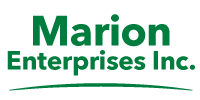



Retrospective on 2020 — A Year Requiring Resiliency
The pandemic of 2020 has accelerated in a very short time what the scientific community sees as a preview of the worst possible impacts of the climate crisis. Experts are weighing in on what the pandemic can teach us about climate change and how we can use this crisis to learn, adapt, and come out more resilient on the other side.
Christiana Figueres, the former Executive Secretary of the UN Framework Convention on Climate Change, summarized some of these lessons that have come into focus due to COVID but that also apply to climate change crisis.
- Global challenges have no national borders.
- As a society, we’re only as safe as our most vulnerable people.
- Global challenges require systemic changes.
- Prevention is better than cure.
- All our response measures need to be based on science.
(Time, “5 Lessons From Coronavirus That Will Help Us Tackle Climate Change,” March 24, 2020)
And while the country and the world slowly pivot toward recovery as vaccines become available, we must have the foresight to recognize that going back to “business as usual” is not an option. Another type of approach was highlighted at the Resilient Virginia Annual Meeting in August, when Jonah Kurman Faber of ClimateXChange discussed their report “Building Back Better: Investing in a Resilient Recovery for Washington State.” The report made clear the benefits to community health, job growth, and climate when recovery funds are used for investments in clean transportation, forest conservation and ecosystem restoration, clean energy, water and energy efficiency, low carbon, and sustainable industry.
The World Resources Institute’s new report on The Future of Nature and Business points out the critical links that need to be re-established between a healthy planet and human health as trillions of dollars are earmarked globally for COVID stimulus packages.
“There is no pathway towards a more resilient economic system that does not protect, invest in, and rebuild natural capital. If the human and economic costs of COVID-19 teach us anything, it is that nature is the foundation of economies designed for greater resilience, equity, and well-being.”
At the state and local levels in Virginia, we see a positive shift toward dealing with the causes of climate change, learning about solutions, and addressing the need to make sure all sectors of society can benefit.
Articles in this month’s newsletter provide an indication of what the Governor’s office and Virginia’s General Assembly are doing to move toward extensive carbon reduction strategies and coastal adaptation policy, and how local governments are taking on climate challenges.
In addition, the need for overarching and inclusive resiliency plans that integrate health, social, and economic concerns with ever-increasing climate changes has been highlighted by the current COVID pandemic’s impact on communities throughout the state. This widespread health disaster has brought into sharp relief the problems of families and communities that are faced with a severe economic downturn, disruption of school and social services, food and housing insecurity, and a re-definition of “essential services” as everyone struggles with ongoing challenges.
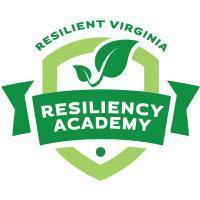
In order to help address the growing demand for information and education on becoming more resilient, Resilient Virginia’s organized the Fall 2020 Resiliency Academy Webinar series that featured four webinars which highlighted some of the best resiliency planning tools available to help communities build the capacity to deal with severe disturbances and chronic stressors.
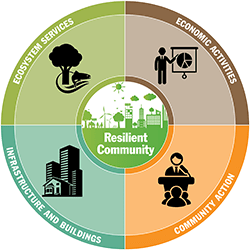
Looking Ahead to 2021
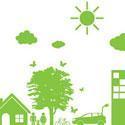
Resiliency Case Studies. Working with the National Oceanic and Atmospheric Administration (NOAA) Climate Program Office, and with the assistance of students in the VA Tech Center for Leadership in Global Sustainability (CLIGS) program, we will assemble case studies of community resiliency initiatives from around the Commonwealth that will be posted on the US Climate Resilience Toolkit and the Resilient Virginia websites.

2nd Resiliency Academy Series. Our Spring webinar series will focus on components of resiliency planning, including climate risk assessments; the role of buildings, infrastructure, and transportation in resiliency planning; and how natural resources and sustainable agriculture can be part of adaptation planning.
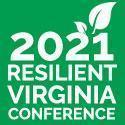
Our Statewide Resilient Virginia Conference Will Take Place Again in 2021. This Summer event will build on the success of the 2019 conference that served to report on progress, define ongoing challenges, and propel policy direction. Look for information on ways to participate on the Planning Committee and opportunities for sponsorship.
With your support we will grow our resiliency information hub, carry out workshops and conferences, and offer communities tools they need to address climate change.
You can help us reach our goals!
Join or donate before the end of December — your $50 donation gives you a one-year Individual Membership to Resilient Virginia and access to the recordings of the 2020 Resiliency Academy webinars. See other options for membership or annual sponsorship here. Special donor benefits — available through December 31 — will help support a local Charlottesville business, Cocoa and Spice.

State and Local News
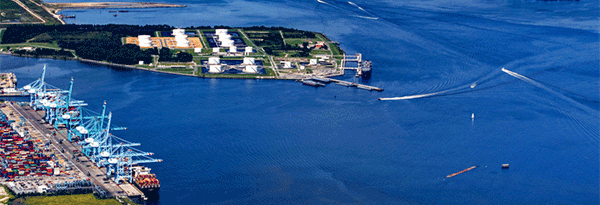
Virginia Coastal Resilience Master Plan Announced
By Tracy Garland, Events and Social Media Director, Resilient Virginia
With increasing extreme weather events and flooding threatening the lives and livelihoods of Virginia’s residents, Virginia’s leaders are recognizing the importance of resiliency planning, particularly in coastal areas. In October, Governor Ralph Northam announced the development of a Virginia Coastal Resiliency Master Planning Framework, the result of a two-year stakeholder involvement process to develop mitigation strategies to reduce impacts of natural hazards and extreme weather. The framework will serve as a blueprint for implementing Virginia’s Coastal Resilience Master Plan by December of 2021.
On December 3, the Governor’s office announced new initiatives to support the Master Planning Framework. These three executive actions include elevating the Virginia Coastal Zone Management Program to report to the Commonwealth’s Chief Resilience Officer, issuing a statewide request for proposal for technical engineering assistance in developing the Virginia Coastal Resilience Master Plan, and formally establishing the Virginia Coastal Resilience Technical Advisory Committee.
These initiatives will help to improve resiliency in the Commonwealth’s coastal communities and protect our precious coastal resources.
Resources for further information:
Virginia Coastal Master Planning Framework Overview
Virginia Coastal Master Planning Framework — Full Document
Virginia’s Coastal Adaptation and Resilience Master Plan
![]()
Virginia Coastal Policy Center Fall Webinar Series 2020
By Tracy Garland, Events and Social Media Director, Resilient Virginia
 COVID-19 has affected many events this year, and the Virginia Coastal Policy Center’s (VCPC) annual fall conference was no exception. In lieu of an in-person event, the VCPC hosted three virtual webinars focused on resilience in the Commonwealth. Below is a brief description of each of the workshops and links to more information.
COVID-19 has affected many events this year, and the Virginia Coastal Policy Center’s (VCPC) annual fall conference was no exception. In lieu of an in-person event, the VCPC hosted three virtual webinars focused on resilience in the Commonwealth. Below is a brief description of each of the workshops and links to more information.
The Challenge of Financing Resiliency
There are several strategies and tools that local governments can use to finance resilience projects. VCPC partnered with The Riley Center for Livable Communities to host a panel discussion between representatives from the insurance and banking industries, local government, and the private sector. The discussion covered various financing mechanisms, how to use them, and overcoming barriers to implementation. A recording of the webinar is available here.
Resilience in Virginia: Outlook 2021
VCPC’s October webinar included an update on Virginia’s participation in the Regional Greenhouse Gas Initiative and the implementation of Executive Order 24; remarks from the Speaker of the House of Delegates, Eileen Filler-Corn; and a legislative panel discussed resilience issues for the 2021 Virginia General Assembly session. Rear Admiral Ann C. Phillips, US Navy (Retired), Special Assistant to the Governor for Coastal Adaptation and Protection, gave an update on state level Coastal Resilience efforts, available here, and Governor Ralph Northam provided closing remarks. A recording of the webinar is available here.
Liability in the Face of a Changing Climate
VCPC partnered with the Environmental Law Section of the Virginia State Bar to host a panel discussion exploring potential liability issues from four perspectives: the private design and build community, local government, state and local transportation infrastructure, and state regulation. Panelists included Bill Franczek (Vandeventer Black LLP), Trip Pollard (Southern Environmental Law Center), Kay Wilson (City of Virginia Beach), and David Paylor (Virginia Department of Environmental Quality). A recording of the webinar is available here.
![]()
Virginia Clean Energy Summit 2020 Defines Path to Decarbonization
 The second Virginia Clean Energy Summit took place virtually on October 20–21 this year. Governor Northam provided opening remarks again this year, restating the pledge to power our grid with 30% renewable energy by 2030 and looking forward to a carbon-free economy by 2050. The Governor reviewed the state’s significant offshore wind progress, with Orsted, the largest offshore wind developer in the world, having leased 40 acres at the Portsmouth marine terminal to develop Virginia’s capacity in that area. The Governor also discussed the Rocky Forge Wind Project, the state’s first utility-scale onshore wind project. To be constructed in Botetourt County, the project will produce enough energy to power approximately 20,000 homes.
The second Virginia Clean Energy Summit took place virtually on October 20–21 this year. Governor Northam provided opening remarks again this year, restating the pledge to power our grid with 30% renewable energy by 2030 and looking forward to a carbon-free economy by 2050. The Governor reviewed the state’s significant offshore wind progress, with Orsted, the largest offshore wind developer in the world, having leased 40 acres at the Portsmouth marine terminal to develop Virginia’s capacity in that area. The Governor also discussed the Rocky Forge Wind Project, the state’s first utility-scale onshore wind project. To be constructed in Botetourt County, the project will produce enough energy to power approximately 20,000 homes.
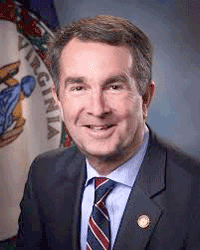
The basis for this extensive forward motion by the state is the Virginia Clean Economy Act, signed by the Governor in April 12, 2020. This bill positions the Commonwealth as the first Southern state with a goal of going carbon-free by 2050. The bill mandates that the state’s biggest utility, Dominion Energy, switch to renewable energy by 2045; Appalachian Power, which serves far southwest Virginia, must go carbon-free by 2050. It also mandates the shutdown of almost all of the state’s coal plants by the end of 2024. The legislation also sets energy efficiency standards that the utilities must meet, allows for more rooftop solar and expands net metering, mandates that utilities acquire storage capacity, and calls for the development of offshore and onshore wind energy.
Additional legislation passed in the 2020 General Assembly, the Clean Energy and Community Flood Preparedness Act, enables Virginia to join the Regional Greenhouse Gas Initiative — a carbon cap-and-trade market that has in the past included Northeastern states including Maryland. The Act creates a Virginia Community Flood Preparedness Fund to enhance flood prevention, protection, and coastal resilience. It creates a low-interest loan program to help inland and coastal communities that are subject to recurrent flooding. The sale of emissions allowances will supply funds for the program.
“These new clean energy laws propel Virginia to leadership among the states in fighting climate change,” said Governor Northam. “They advance environmental justice and help create clean energy jobs. In Virginia, we are proving that a clean environment and a strong economy go hand-in-hand.”
Additional information on these two laws can be found here.
To find out more about Virginia’s movement toward clean energy, you can check out the Virginia Mercury’s five-part series on “Virginia’s Clean Energy Transition” by Sarah Vogelsong, that ran starting in their November 30, 2020 edition.
VIRGINIA’S CLEAN ENERGY TRANSITION Archives — Virginia Mercury

Dr. William Shobe, Director of the Center for Economic and Policy Studies at UVA’s Weldon Cooper Center for Public Service, gave the keynote address at the Virginia Clean Energy Summit, in which he outlined the path forward for Virginia to decarbonize the state’s economy. He cautioned that this effort will be most successful with a combination of purposeful investment in technological innovation along with supporting policy adoption.
At the Clean Energy Summit, Dr. Shobe reviewed research results that indicate solar, offshore wind, and nuclear will be the foundation of the net zero energy supply; storage will be a necessary complement of renewable energy; and high levels of efficiency will be necessary in the transportation and building sectors, which also will move toward all-electric systems. He further stated that natural gas capacity would remain but will transition to carbon-free gas; that hydrogen becomes more important as a liquid fuel; and that bio-based synthetic fuels and negative emission technology will need to be developed.
Despite the need for technological innovation, Dr. Shobe sees this transition as achievable and affordable, citing, for example, that solar and wind technologies are now cheaper than coal and natural gas alternatives. Dr. Shobe states that by making the investment in directed-technology innovations, Virginia can move toward being its own least-cost clean energy producer.
Dr. Shobe heads up the Energy Transition Initiative at the University of Virginia, which is dedicated to helping policy makers and other stakeholders navigate this challenge. The Energy Transition Initiative brings together experts in economics, policy, planning, and energy systems from the Weldon Cooper Center, the Virginia Solar Initiative, the Virginia Clean Energy Project, and other units at the University of Virginia.
You can read more about their approach to decarbonization in this interview of Dr. Shobe.
![]()
Local Resiliency Actions Around the State
This month we are highlighting resiliency actions that are being carried out by local governments around the state.
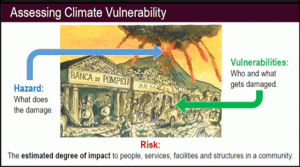 Resiliency Topic: Climate Risk Assessment
Resiliency Topic: Climate Risk Assessment
Blacksburg Carries Out Climate Risk Assessment with Help from VA Tech
Carol Davis, Sustainability Manager of the Town of Blacksburg, was able to enlist the assistance of Virginia Tech professors to carry out a climate risk assessment for her community. This is one of the actions required since Blacksburg is a member of the Global Conference of Mayors for Climate and Energy, and it sets the stage for developing a comprehensive resiliency plan. Ms. Davis found, however, that adaptation and resilience information was hard to come by for non-coastal Virginia Communities. So in order to accomplish this goal, she started a process in Spring of 2019 which should culminate in January 2021 that has involved:
- Gathering data on climate modeling projections from the NOAA Climate Explorer and the National Climate Assessment. In this way, she was able to identify and prioritize the top climate hazards of concern for Blacksburg: hotter summers, warmer winters, and increased precipitation and changing precipitation patterns;
- Developing levels of vulnerability, which first involved grouping community systems into four broad categories: People & Climate, Natural Systems, Economy & Employment, and Infrastructure & Basic Services;
- Assembling an Advisory Committee to assist with understanding the hazard/vulnerability/adaptation capacity of various systems; and
- Working with the Advisory Committee comprised of VA Tech professors with expertise ranging across natural science, engineering, health, and other fields, to further analyze risk levels. The final assessment included pairing these potential areas of vulnerability with a risk matrix that would anticipate the degree of risk for each community system relative to Blacksburg’s primary climate hazards.
This allowed Ms. Davis to develop adaptation strategies that would center around areas of highest anticipated risk. For example, the chart below spells out highest priorities impacts from warmer winters.
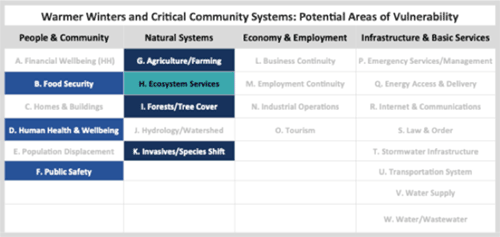
The Climate Vulnerability Assessment for Blacksburg, Virginia is almost ready for submission to the town leaders and community for action. Of significance in success of this process has been the wholehearted support of the Blacksburg mayor. The community now has an in-depth understanding of potential areas of vulnerability and is equipped with specific actions they can take for short- and long-term resilience.
Note: This article is excerpted from a case study written by Trisha Porter, 2020 VA Tech CLIGS student. She and two other students, Garrett Davidson and Erik Torraca, are researching and writing case studies on resiliency initiatives by local governments around the state. Their products will be featured on the NOAA US Climate Resilience Toolkit website as well as on the Resilient Virginia website. Please contact Annette Osso, Managing Director, Resilient Virginia, if you would like your community to be included as a case study.
![]()
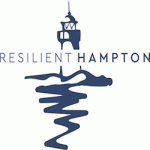 Resiliency Topic: Green Infrastructure Financing
Resiliency Topic: Green Infrastructure Financing
Hampton Uses Innovative Financing for Flood Mitigation
The City of Hampton Virginia is now the first Virginia municipality to use Environmental Impact Bond financing to address flooding through green infrastructure projects. As reported in the ABC Channel 8 News, Hampton closed in early December on this creative outcomes-based tool to finance $12 million in nature-based solutions to localized flooding as part of its Resilient Hampton initiative. Three critical projects will be undertaken to add more than 8.6 million gallons of storage capacity for stormwater that would otherwise contribute to flooding and polluted runoff in the Newmarket Creek watershed. This area is a key environmental, economic, and transportation corridor. The project is designed to gather data that will quantify what the investment will achieve in terms of increased storage capacity and reduced flooding.
The three projects — all of which include green infrastructure additions and structural changes to divert water flow — are the Big Bethel Blueway, the North Armistead Avenue Road Raising and Green Infrastructure project, and added capacity to Lake Hampton.
Read more about the Hampton initiative here and about the Resilient Hampton resiliency program here.

National News
National Economic Transition Platform Supports Exit from Coal-Driven Economies
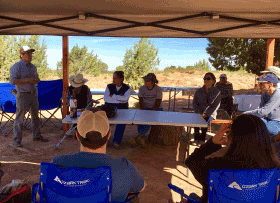 Local, tribal, labor, and community leaders living and working in America’s coal communities worked together during 2019 to bring their ideas to the table, listen to each other, and determine the best path forward to address a community-led solution path to the challenge of transitioning from a coal-based economy in key areas of the country. This highly interactive effort was supported by the Just Transition Fund. The result, rolled out in early Fall of 2020, is the National Economic Transition Platform, which shows federal and national policymakers a clear path forward that can be used to develop a community-powered national transition program that these communities need and deserve.
Local, tribal, labor, and community leaders living and working in America’s coal communities worked together during 2019 to bring their ideas to the table, listen to each other, and determine the best path forward to address a community-led solution path to the challenge of transitioning from a coal-based economy in key areas of the country. This highly interactive effort was supported by the Just Transition Fund. The result, rolled out in early Fall of 2020, is the National Economic Transition Platform, which shows federal and national policymakers a clear path forward that can be used to develop a community-powered national transition program that these communities need and deserve.
Community representatives from Appalachia, the Midwest, and the West — 80 organizations and leaders — met in person and virtually to develop seven pillars of policy recommendations that, together, will create vibrant, livable, and inclusive places and communities. They include:
- Investments in supporting local leaders and organizations to lead the transition — especially Black, brown, women, and indigenous-led organizations;
- Support for local small businesses and entrepreneurship;
- A bridge for impacted workers to quality, family-sustaining jobs;
- The reclamation and remediation of coal sites;
- Significant infrastructure improvements;
- An effort to hold coal companies accountable through bankruptcies; and
- The creation of entities to coordinate the transition program and get communities the resources they need.
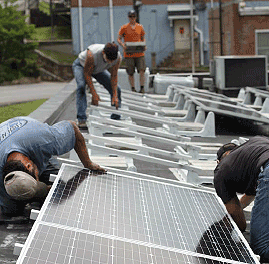 The platform empowers workers and communities — in rural, urban, and tribal settings — as positive agents for change as the country reduces the risks and adapts to the realities of climate change while confronting economic and public health crises. These are solutions built by and for communities to create thriving, resilient economies that can withstand shocks like COVID-19 and equip workers and families.
The platform empowers workers and communities — in rural, urban, and tribal settings — as positive agents for change as the country reduces the risks and adapts to the realities of climate change while confronting economic and public health crises. These are solutions built by and for communities to create thriving, resilient economies that can withstand shocks like COVID-19 and equip workers and families.
While the publication rightly highlights and celebrates the self-motivated initiatives of communities, it also points to the imperative of federal action. The plan states:
“We need a new federal transition program that will target and expand resources for affected communities and workers and coordinate across sectors and agencies.” It proposes these two immediate steps:
- Create a National Community Transition Action Plan, created within a one-year period, that would identify priorities and needs across affected communities.
- Create a new Federal Office of Economic Transition to coordinate and oversee the new national community transition program.
In Virginia’s coal country, the reality of declining coal jobs is exemplified with the state reporting only 2,887 coal industry jobs in 2019. In contrast, there were double that amount of solar-connected jobs across the state in 2019, and the 2020 Virginia Clean Economy Act and other legislation have the potential to boost solar-related jobs by another 30,000 over the next decade.

From the Appalachian area, organizations involved with NET initiative included Scale, a consulting company led by Anthony Flaccavento, which works with rural communities and businesses to catalyze and accelerate economies to increase community wealth and restore or sustain the ecosystem. Anthony is also author of the book, Building a Healthy Economy from the Bottom Up (University Press of Kentucky, 2016) and is a farmer and former congressional candidate from Southwest Virginia. In addition, Anthony is a member of the Resilient Virginia Board of Directors, and presented his views of the rural/urban divide at the 2019 Resilient Virginia Conference.
 Another regional organization — Appalachian Voices — that was involved with the NET Platform development is also playing a significant role in developing alternative economic growth opportunities in Southwest Virginia. Through an arduous, five-year process, this nonprofit organization, led by the regional director of community and economic development, Adam Wells, has succeeded in setting up a solar development initiative. This effort, involving private and public partners, will eventually result in the installation of up to 12 megawatts of solar power in the next three years, while creating jobs and setting up a training program at the Mountain Empire Community College. Of note is the role that the solar developer, Secure Futures, is playing, since this company, with other partners, will be installing solar systems on five commercial buildings, five multifamily units, and ten schools.
Another regional organization — Appalachian Voices — that was involved with the NET Platform development is also playing a significant role in developing alternative economic growth opportunities in Southwest Virginia. Through an arduous, five-year process, this nonprofit organization, led by the regional director of community and economic development, Adam Wells, has succeeded in setting up a solar development initiative. This effort, involving private and public partners, will eventually result in the installation of up to 12 megawatts of solar power in the next three years, while creating jobs and setting up a training program at the Mountain Empire Community College. Of note is the role that the solar developer, Secure Futures, is playing, since this company, with other partners, will be installing solar systems on five commercial buildings, five multifamily units, and ten schools.![]()
How State Investments Can Aid Local Resilience Initiatives
By Tracy Garland, Events and Social Media Director, Resilient Virginia
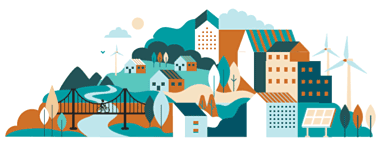
While climate resilience solutions are mostly local, many local governments lack the financial and technical resources necessary to implement resilience planning, financing, and implementation. State governments can not only help localities with the efforts, but can benefit from the improved quality of life, reduced disaster impacts, and increased economic stability of its constituents. Research and reporting by the Innovation Network for Communities and Climate Resilience Consulting with funding from the Summit Foundation highlights how states and localities can work together to improve climate resilience.
Report: How State Governments Can Help Communities Invest in Climate Resilience
This report presents recommendations for how state governments can develop climate-resilience financial systems that help local communities invest in protecting residents, businesses, public infrastructure, private property, and natural resources from climate-driven stresses and shocks. The six recommendations for building state resilience financial systems include:
- Provide basic services and tools for local resilience strengthening
- Increase the state’s financial resources for resilience investment
- Support the development of local pipelines of “ready-to-go” projects for climate resilience
- Enable local funding for implementing public infrastructure projects
- Leverage private investment in local resilience development
- Push to expand and increase flexibility of federal funding for pre-disaster resilience
Webinar: How State Governments Can Help Communities Invest in Climate Resilience
This webinar, hosted by the Security and Sustainability Forum, brought state and local leaders and resilience finance experts from around the country together in an interactive session to discuss the following topics:
- What financial strategies can state governments use to help local governments invest in climate resilience?
- What resources do states have to fund and finance resilience?
- How can states expand federal pre-disaster funding?
- What can states do to enable local governments to raise local funds for resilience projects?
- How can private investment in local resilience be increased?
Survey: Momentum for Action is Building: State Governments and Climate Resilience
The Innovation Network for Communities and Climate Resilience Consulting conducted this survey in August and September of 2020 and 31 states responded, including Virginia. The main takeaways of the survey were:
- Few of the 31 states are fully implementing key elements of climate resilience, but the majority are planning or starting to implement them.
- Although a majority of the 31 states are dedicating existing state revenue for resilience strengthening, few are moving to generate new revenue exclusively for resilience strengthening or to authorize local governments to raise and spend new local revenue for resilience.
- A majority of the 31 states are planning, piloting, or starting to implement these supports for local communities.
- Few of the 31 states have an agenda for federal policies/programs to support state and local resilience building, and not many are planning to develop one.

Funding and Resources
FEMA Region 3’s Report on Virginia COVID-19 Recovery Issues and Opportunities
By Wynne Kwan, FEMA Region 3 Community Planning and Capacity Building Coordinator
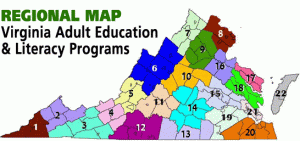 Virginia, along with the rest of the nation, is working through unprecedented times to define recovery coordination during a pandemic that requires sustained response operations. COVID-19 is both a public health and economic crisis that requires a level of coordination that is much more expansive than in natural hazard disasters. The ongoing need for response operations has added a level of complexity for emergency managers and planners across the nation. Because of this complexity, FEMA Region 3 stood up the COVID-19 Interagency Recovery Coordination Task Force (IRCTF) in late April 2020 to focus on the following lines of effort:
Virginia, along with the rest of the nation, is working through unprecedented times to define recovery coordination during a pandemic that requires sustained response operations. COVID-19 is both a public health and economic crisis that requires a level of coordination that is much more expansive than in natural hazard disasters. The ongoing need for response operations has added a level of complexity for emergency managers and planners across the nation. Because of this complexity, FEMA Region 3 stood up the COVID-19 Interagency Recovery Coordination Task Force (IRCTF) in late April 2020 to focus on the following lines of effort:
- Understand challenges faced by state partners and support their recovery priorities,
- Support resource needs in mental health and social services,
- Support states as they approach economic stabilization, and
- Facilitate access to resources and identify where resource scarcity exists.
The IRCTF, in support of the Virginia Department of Emergency Management, conducted listening sessions with the Planning District Commissions (PDC) in Virginia and other partners. During these discussions, we learned that amidst the great challenges brought by COVID-19, there was much innovation and opportunity. The issues, impacts, opportunities, projects, and planning efforts related to COVID-19 recovery identified in the listening sessions have been summarized in a document that also identifies technical assistance, capacity building, and other support needs, as well as state programs and resources allocations. The document is meant to provide information for stakeholders undertaking recovery planning activities in the Commonwealth of Virginia. It captures a moment in time, as the issues identified will evolve, and potential new issues may arise with the surge in COVID-19 cases and associated mitigation measures are implemented to curb the spread.
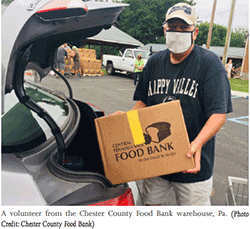 The IRCTF also developed COVID-19’s Impact on the Human and Social Services Sector, a white paper that looks at the ways in which this sector has been affected by the COVID-19 pandemic. Since March 2020, the demand for services within the human and social services sector has grown dramatically even as revenue losses and staff layoffs threaten the safety net so vital to Americans hard-hit by the economic downturn. This report raises awareness about issues that are critical to the safety and well-being of our citizens and the survival of nonprofit organizations that are straining to meet their needs at this time. It highlights the situation in FEMA Region 3, while also providing data on what is happening across the nation. The nonprofit sector and state and local governments have seen large losses of personnel in the human services sector since February 2020, with the greatest losses in educational services and social assistance. This, at a time when needs are exceeding our capacity to provide relief.
The IRCTF also developed COVID-19’s Impact on the Human and Social Services Sector, a white paper that looks at the ways in which this sector has been affected by the COVID-19 pandemic. Since March 2020, the demand for services within the human and social services sector has grown dramatically even as revenue losses and staff layoffs threaten the safety net so vital to Americans hard-hit by the economic downturn. This report raises awareness about issues that are critical to the safety and well-being of our citizens and the survival of nonprofit organizations that are straining to meet their needs at this time. It highlights the situation in FEMA Region 3, while also providing data on what is happening across the nation. The nonprofit sector and state and local governments have seen large losses of personnel in the human services sector since February 2020, with the greatest losses in educational services and social assistance. This, at a time when needs are exceeding our capacity to provide relief.
Through these initiatives we have been able to build new relationships in Virginia and nationally that are very important for recovery efforts now and in the future. Please contact Wynne Kwan, FEMA Region 3 Community Planning and Capacity Building Coordinator, at wynne.kwan@fema.dhs.gov with questions or for more information.
Resilience Events Calendar
During this Winter of 2020–21, please check out the many webinars, conferences, and community meetings that are happening in Virginia and around the nation.
Of special note:
January 5–8: National Council for Science and Environment Drawdown Annual Conference 2021. Research to Action: Science and Solutions for a Planet Under Pressure.
March 23–25: 31st Annual Environment Virginia Symposium
Check our Resilient Events Calendar on a regular basis to find out what is happening in Virginia and around the nation.
Membership
It’s Our Future — Sign Up Today!
Thanks to New Members
Christy Gabbard
Katherine Imhoff
Trisha Porter
Southside Planning District Commission
Jean Umikersebeok
Tracie Whitelaw
Honey Williams
And Donors
Jerry Walker
Marcia Geyer
 Join or donate before the end of December — your $50 donation gives you a one-year Individual Membership to Resilient Virginia and access to all four of the Fall 2020 Resiliency Academy webinar recordings. See other options for membership or annual sponsorship here. Special benefits — available through December 31 — will help support a local Charlottesville business, Cocoa and Spice.
Join or donate before the end of December — your $50 donation gives you a one-year Individual Membership to Resilient Virginia and access to all four of the Fall 2020 Resiliency Academy webinar recordings. See other options for membership or annual sponsorship here. Special benefits — available through December 31 — will help support a local Charlottesville business, Cocoa and Spice.
With your support we continue to expand our resiliency information hub, carry out workshops and conferences, and offer communities the tools they need to address climate change.
You can help by:
Becoming a Member
Signing on as an Annual Sponsor
Making a Donation
Continue your support throughout the year by using one or both of these online shopping sites that contribute to Resilient Virginia:
![]()
If Amazon is your online shopping choice, go to Smile.Amazon.com and designate Resilient Virginia and we will receive a donation with every purchase.

Find lots of discounts and many participating stores for office supplies, general shopping, and special event gifts.




